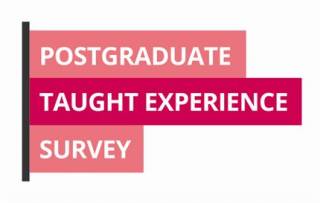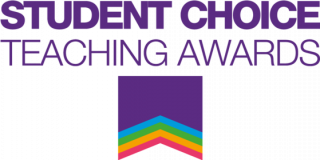Programme Convenor: Professor Bas Aarts
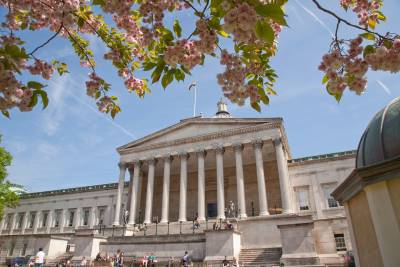
Introduction
Explore how the English language works and grow as a researcher on the UCL MA in English Linguistics. Students on our MA programme are taught by experts in the fields of grammar, morphology and semantics, pragmatics and discourse analysis, and corpus linguistics. We focus on developing your research skills, with plenty of opportunities to discuss your work, from class presentations to regular one-to-one tutorials. You'll be based in Bloomsbury, the heart of London, just minutes away from the British Library and the British Museum.
The 2024/25 programme consists of five components: Modern English Grammar, English Corpus Linguistics OR English in Use, Research Methodology, Topics in English Linguistics (students choose two option courses), and a Dissertation.
- Modern English Grammar
This course offers a comprehensive overview of the grammar of contemporary English. During the first term we start with the basic building blocks of word classes, phrases and clauses, as well as grammatical functions. During the second term we discuss more complex syntactic structures. A major feature of the course is that students will be trained to apply the principles of syntactic argumentation.
This 30-credit course is compulsory for all students. It is taught in two-hour long weekly seminars over two terms, and is assessed by a three-hour written exam.

- Research Methodology
The main aim of this course is to train students in a range of practical research skills, allowing them to perform self-directed research in linguistics, from identifying sources of evidence and designing experiments, to evaluating empirical results, engaging critically and integrating results with existing literature. During the first term we discuss topics such academic writing, data collection, and quantitative and qualitative research. The second term includes statistics for linguistics, and a set of four sessions focused on developing your dissertation work from first ideas to well-formed research proposal.
This 30-credit course is compulsory for all students. It is taught in two-hour long weekly seminars over two terms, and is assessed by a portfolio of written work.
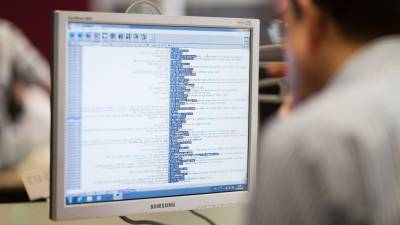
- Pathways: English Corpus Linguistics and English in Use
Students choose to specialise in either Corpus Linguistics or English in Use after one term of seminars. Both 30-credit courses are taught in two-hour long weekly seminars over two terms, and are assessed by a 6,000 word Course Essay on a topic of the student's choice.
English Corpus Linguistics
This course teaches the theory and practice of corpus linguistics in English language research and applications. Two state-of-art fully-grammatically parsed corpora of spoken and written English developed at UCL, the British Component of the International Corpus of English (ICE-GB) and the Diachronic Corpus of Present-Day English (DCPSE), are used as exemplars to teach the course in depth, in the first term.
Students will acquire a thorough understanding of corpus linguistics research methods in (for example) syntax, semantics, pragmatics and lexicography.
English in Use
This course looks at how speakers of English use language directly and indirectly to achieve communicative goals, and introduces students to the main theories of pragmatics, different approaches to Politeness and Impoliteness Theory, as well as topics ranging from forensic linguistics to world Englishes. Students develop the skills to apply corpus analysis tools to investigate and describe pragmatic and discourse phenomena, and to related what is studied to real-world examples of language in use.

- Topics in English Linguistics
This module is assessed by a compulsory three-hour written exam. It covers a range of topics in English linguistics, and in the exam students will be required to answer questions on two of these topics. Options typically include:
English Words
This one-term option course considers various aspects of the lexicon of English, including the structure and meaning of words and how this changes, where new words come from, and social aspects of word use. We will discuss topics in morphology, lexical semantics and the history of English, and take a detailed look at the 'life stories' of some English words.
English Sounds
In this course, we explore the phonetics and phonology of English. We consider the structural elements of the English sound system: which sounds and combinations of sounds are possible, where, and why. The phonetics part of the course exposes students to acoustic instrumental techniques to describe the vowels and consonants, stress and intonation patterns of different varieties of English. Finally, the course considers the ways in which the sound system of English has changed over time, and how it continues to do so today.
World Englishes
In World Englishes, we study the spread of English around the world and consider how this spread has resulted in the development of varieties of English. We examine the structural features of these Englishes, consider the roles and functions of these Englishes, particularly in relation to indigenous and foreign languages, and look at attitudes and ideologies surrounding their use. The course introduces students to a wide range of resources and approaches for studying World Englishes including: the International Corpus of English; literary texts; historical and contemporary audio and video recordings; and linguistic landscapes.
Literary Linguistics
This two-term course foregrounds the relationship between language and literary and non-literary texts, and considers language use from particular perspectives. In classes we will discuss approaches from within stylistics and discourse analysis, and examine the ways in which specific linguistic choices create variations in style and meaning. The questions of what makes a text, and what makes a 'literary' text, will be explored; we will go on to explore topics including the difference between spoken and written texts, features of language such as deixis and metaphor, and the language of particular authors including Milton and Henry James.
History of the English Language
The course traces the growth of a standardised variety of English since the Anglo-Saxon period and considers how and why Standard English and other varieties have changed and continue to change. Classes will explore the social and cultural factors that have shaped English in different periods, and examine past and present attitudes to aspects of language (such as grammar, lexis, spelling and accent) and language change.

- Dissertation
The final dissertation is a very important component of the course as it provides the opportunity for students undertake independent research and writing to complete a stand-alone project based on their individual scholarly interests. It consists of 10,000 words and students work on it over the summer for submission at the end of August. Several weeks of the Spring Term Research Methodology sessions are devoted to workshops helping students develop their dissertation plans.

Curriculum and Assessment
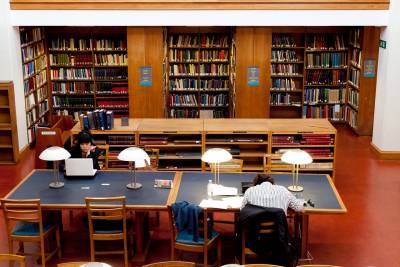
Students are taught through seminars and tutorials. Over the year they write a number of essays, they do presentations during the spring term, and take examinations in the summer term. Forms of assessment vary between modules, as explained in the module descriptions above. Students have access to the Survey of English Usage (see below), and are taught how to make use of its resources for their dissertations.
Overall, the dissertation is worth 1/3 of your final mark, the two examinations are worth another 1/3, and the Course Essay and Research Methods assignments make up the final 1/3 of the grade.
Further Information
For further information about this course, please email Natasha Clark.
Apply Online
A link to the application form, as well as more detailed information about entry requirements, can be found at the bottom of the MA in English Linguistics prospectus page.
Frequently Asked Questions
- What are the application requirements?
Applications are welcome from candidates who have at least a second class Honours degree in English language or literature, or in linguistics, or an overseas equivalent. Some prior knowledge of English language studies (specifically English grammar) is expected for the programme.
- Can I do the course part-time?
Part-time students take the Modern English Grammar course in their first year, together with one option course. During the second year they take their second core course (either English Corpus Linguistics or English Language in Use), as well as a second option course. The dissertation will be written during the summer of the second year of study. Part-time students will be encouraged to work on their dissertations over the summer following their first year. Please note that if you intend to work, your employer will need to allow you to work flexibly, as it will not be possible to make special timetable arrangements for part-time students. Please also note that there are restrictions on non-EU students applying for part-time places.
- What is the difference between the MA in English Linguistics and the MA in Linguistics (MAL)?
There are important differences between the MA in English Linguistics (MAEL) and the MA in Linguistics (MAL). First, the former is based in the English Department while the MA in Linguistics is based in the Division of Psychology and Language Sciences. From the point of view of content the MAEL focuses on the English language, and has a more descriptive outlook than the theoretically-oriented MAL, which does not have an exclusive focus on any particular language
- What opportunities are there for further research?
Students who have obtained good results for their MA examinations may be considered for the MPhil/PhD programme, subject to places and suitable supervisors being available.
Student Testimonials
"Although I came from an undergraduate linguistics background, the heavily research-based MAEL program proved to enrich and expound on what I already had at an accelerated pace while allowing me to create intimate relationships with expert faculty who helped me to produce my best research and written work through numerous intensive tutorials. As a result, I have grown as a linguist in ways that I couldn’t have expected before." Lyndsie Newell (MAEL 2018-19)
"As someone who is coming off fourteen years of working as an English teacher, I was very excited for the chance to be a student again. By choosing the MA in English Linguistics I am able to study language from a range of perspectives, from the smallest units of individual words to wider discourse and language in use. This is a challenging programme, filled with excellent teaching, engaging seminar discussions and learning in a supportive environment. Individual tutoring sessions are so valuable in helping you progress. We spend lunch times arguing about grammar!" Liisa Metsaranta (MAEL 2018-19)
"Applying what I learned, I have become more professional in English language, better at communicating more effectively, and more able to create pleasant experience during interpersonal relationships. I am glad to see that [many students from my year] are making contributions to English teaching and learning in China. Without MAEL, this surely wouldn’t have happened." Yun Feng (MAEL 2015-16)
"I started my MAEL programme in 2014, which was also the starting point of my lifelong ambition. I attended all compulsory and optional courses since they are so interesting and are never a waste of time! As a non-native, I also gained excellent experience in academic research and developed great writing skills (many thanks to all tutors who gave me tutorials). I like the subject, the courses, the staff, the department, the school, the city, so I further my study here for a PhD degree! Legendary!" Ai Zhong (MAEL 2014-15)
"I did the UCL MA in English Linguistics part-time over two years and lectures on semantics, phonetics and grammar were the highlight of my week! It impacted my work in two ways; I became much more aware of the language choices we make, often inadvertently, and this improved my communication in general. Since graduating, I have also set up a new division of my PR business, Word Savvy, which helps business people to think about their written and spoken communication. I would definitely recommend this MA to others. It’s fascinating and has brought great benefits to my working life." Kate Warwick, Director, PR Savvy (MAEL 2013-15)
Academic Staff Participating in the Programme
- Professor Bas Aarts, Professor of English Linguistics and Director of the Survey of English Usage. Publications include Small Clauses in English (1992), The Verb in Contemporary English: Theory and Description (1995, edited with Charles F. Meyer), Exploring Natural Language: Working with the British Component of the International Corpus of English (2002, with Gerald Nelson and Sean Wallis), Fuzzy Grammar: a Reader (2004, edited with David Denison, Evelien Keizer and Gergana Popova), Syntactic Gradience: the Nature of Grammatical Indeterminacy (2007), Oxford Modern English Grammar (2011), The Verb Phrase in English: Investigating Recent Language Change with Corpora (2013, edited with Joanne Close, Geoffrey Leech and Sean Wallis), the Oxford Dictionary of English Grammar (2014, second edition with Edmund Weiner and Sylvia Chalker), How to Teach Grammar (2019, with Ian Cushing and Richard Hudson), the Oxford Handbook of English Grammar (2020, edited with Jill Bowie and Gergana Popova), and the Handbook of English Linguistics (second edition 2021, edited with April McMahon and Lars Hinrichs). Aarts is a Founding Editor of the Cambridge University Press journal English Language and Linguistics.
- Dr Kathryn Allan, Associate Professor. She is author of Metaphor and Metonymy: A Diachronic Approach, and co-editor of the volumes Current Methods in Historical Semantics and Historical Cognitive Linguistics, published in Mouton’s Cognitive Linguistics Research series. With Christian Kay, she is the co-author of the textbook English Historical Semantics, (2015, Edinburgh UP). She is also a contributor to the Keywords Project, a collaborative US/UK research project which builds on Raymond Williams’ work in exploring social/cultural ‘keywords’. She was involved in the publication of Keywords for Today: a 21st Century Vocabulary. She was the Honorary Membership Secretary of the Philological Society from 2010-2013, and is currently on its Council. She is on the Editorial Board for the Oxford University Press journal Forum for Modern Language Studies. Her key research interests are historical linguistics, lexicology and lexical semantics.
- Dr Guyanne Wilson, Quirk Lecturer in English Linguistics. She is the co-editor of the volume New Englishes, New Methods (John Benjamins 2023, with Michael Westphal). Guyanne Wilson is also the author of Language Ideologies and Identities on Facebook and TikTok: A Southern Caribbean perspective, to appear in the Cambridge Elements in World Englishes series, as well as several articles in the journals World Englishes and English World-Wide. She contributed to the Wiley Blackwell Encyclopaedia of World Englishes and worked on the compilation of the Trinidad and Tobago (2010-2014) and Ugandan components of the International Corpus of English (2016-2022). She currently serves on editorial board of the journal English World-Wide, and is a member of the International Association of World Englishes, the International Society for the Linguistics of English, and the Society for Caribbean Linguistics. Guyanne Wilson’s key research is in World Englishes, particularly language attitudes and ideologies, World Englishes on social media, and research methods in World Englishes.
- Sean Wallis, Principal Research Fellow, Survey of English Usage. He is the programmer of the ICECUP corpus exploration software, technical supervisor of ICE-GB and DCPSE, co-author, with Gerald Nelson and Bas Aarts, of Exploring Natural Language (2002), co-editor, with Bas Aarts, Geoffrey Leech and Joanne Close, of The Verb Phrase in English: Investigating Recent Language Change with Corpora (2013), and author of many journal articles and book chapters on Corpus Linguistics methodology and statistics. As well as several publications in journals and edited books, he maintains an academic blog at https://corplingstats.wordpress.com/. Latest publication: Statistics in Corpus Linguistics Research (2020).
Karen Dwyer, Teaching Fellow. She is the author of a number of journal articles on language and communication disorders in psychosis, and their relationship with mentalizing abilities. More recently, she has published on the expression of ‘out-of-the-ordinary’ spiritual experiences.

The Survey of English Usage
The Department of English Language and Literature houses the Survey of English Usage (SEU), an unparalleled resource for research into the grammatical repertoire of mature educated native speakers of English. The SEU houses several corpora (large collections of authentic spoken and written texts). Among them are the British component of the International Corpus of English and the Diachronic Corpus of Present-Day English, both of which can be explored using innovative search software. Many important studies of the grammar, semantics and lexis of present-day English are based on SEU material. Among them are the Comprehensive Grammar of the English Language (Quirk et al. 1985), which is recognised internationally as one of the standard reference grammars for English, and the Oxford Modern English Grammar (Aarts 2011).
Students at UCL have a wide range of library resources at their disposal both on campus and online. There are also several outstanding libraries in the near vicinity of UCL, including the British Library and the University of London Library.
 Close
Close






